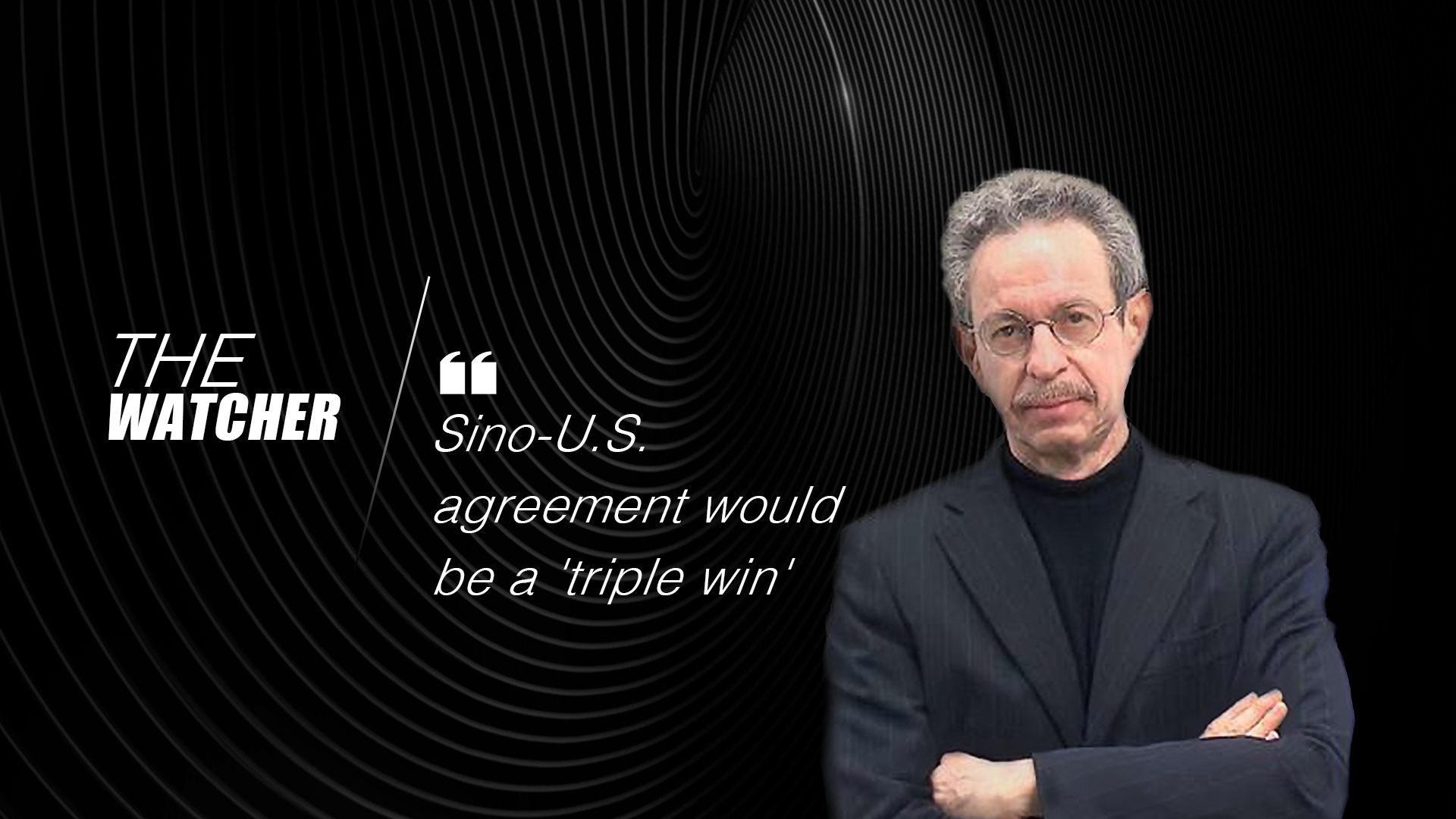
TV Show
14:49, 23-Feb-2019
The Watcher: Sino-U.S. agreement would be a 'triple win'
Robert Lawrence Kuhn
03:35

I'm Robert Lawrence Kuhn and here's what I'm watching.
Continuing trade negotiations between China and the U.S. as the 90-day truce approaches the March 1 deadline. Here's why I can continue to be optimistic.
Chinese President Xi Jinping and U.S. President Donald Trump are both taking active leadership of the negotiations, with each leader making a personal commitment to resolving the dispute. I do not think either leader would take such a public position, investing his political capital without having high confidence of success.
Both Presidents need a deal, though for very different reasons.
President Xi is fighting three big battles: containing risk especially financial risk, poverty alleviation and pollution reduction along with a slowing economy and the need for further reform including state-owned enterprises, SOE reform, in the face of interest-group resistance.
President Xi does not need a protracted trade war.
President Trump has angry farmers and a volatile stock market on his hands along with signs of a slowing economy and a welter of political and personal problems.
Going into the 2020 election, President Trump too does not need a protracted trade war.
There is pressure on both sides on both Presidents to get a deal done.
I continue to focus on five major issues beyond the trade deficit, facing negotiators: 1) further opening China's markets 2) intellectual property protection 3) commercial cybertheft 4) forced technology transfers through mandatory joint ventures 5) the Chinese government's subsidies of state-owned enterprises and new technologies.
On some of these, like intellectual property rights, China has made real progress and should be given proper credit. China is trying to build its economy and elevate the standard of living of its people.
To achieve this, China believes that social stability and policy leadership provided by its political-economic system are absolutely necessary.
When I meet with Chinese economists, I hear that some of the primary U.S. requirements: intellectual property protection, opening up markets, reductions in state subsidies are precisely what China needs to do anyway for its own optimal development.
Intellectual property protection stimulates innovation and an even playing field for private and state-owned enterprises would mean reduced monopolies and greater competition.
The opening of China's markets to foreign businesses would motivate Chinese companies to become more efficient and provide Chinese consumers with better value.
There is irony in all this: while the changes the U.S. demands would help the U.S. in the short run, they would help China even more in the long run.
The big picture is that Sino-U.S. agreement would be "win-win-win", "triple win", win for China, win for the U.S., win for the world.
I'm keeping watch. I'm Robert Lawrence Kuhn.
(If you want to contribute and have specific expertise, please contact us at opinions@cgtn.com.)

SITEMAP
Copyright © 2018 CGTN. Beijing ICP prepared NO.16065310-3
Copyright © 2018 CGTN. Beijing ICP prepared NO.16065310-3